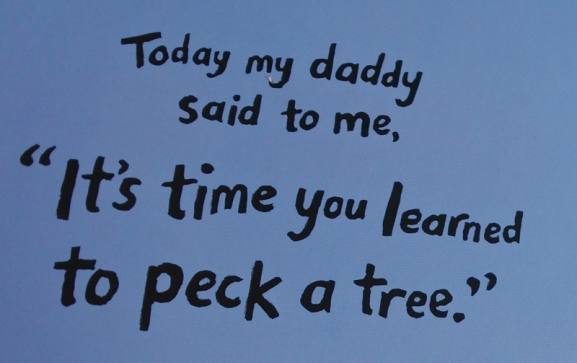Hello Papercutters! I know, I know … it’s been a while. There was some (additional) Mother-in-Law interference last week, as well as some other stuff that kept me away from the blog. I won’t let it happen again! Honest!
Did you believe that, or did I come across as phony? You don’t have to tell me, but while we’re on the subject, let’s make phony our word of inquiry today, shall we?

Phony is a strange word. Not only does our “president” like it (hence the tweet), but it has nothing to do with any of the “phones” that are out there in the world: telephones, homophones, microphones, headphones, megaphones. So what does it have to do with and what exactly does it mean?
We’ll take that last question first. As implied above, phony is often used as an adjective to describe something or someone as “fake, not real, or disingenuous.” It can also be used as a noun, meaning a disingenuous or hypocritical person, as in “That guy’s a phony.” But hey, don’t take my word for it, let’s go to the dictionaries!
American Heritage Dictionary:
phony (also phoney), adj. Informal. Not genuine or real; spurious; fake. n. 1. something not genuine. 2. A spurious person; impostor; hypocrite. [Origin unknown]
Webster’s New World Dictionary of the American Language
phony, adj. [said to be altered < Forney, cheap jewelry < forney rings, brass rings made by a manufacturer named Forney for sale by street peddlers], [Slang], not genuine; false; counterfeit; spurious; fake; sham. n. 1. something not genuine; sham; fake. 2. a person who pretends to be what he is not; charlatan; imposter. Also spelled phoney.
Since Webster’s referred to it as “slang” rather than “informal,” I also consulted the Dictionary of Slang and Unconventional English (Partridge), which associates phoney/phony with “fraudulent, shady, criminal, unreal, and make-believe.”
 Obviously, there’s a lot of agreement among these references about the meaning of phony. It’s etymology, however, is a different story. We’ll get to that, but before we do, let’s (re)consider the president’s tweet. Putting aside the fact that “phony witch hunt” is redundant, his claim that jobs and enthusiasm are “way up,” just isn’t true. (It is true that the unemployment rate is the lowest it’s been since 2001, but the reason it’s so low is because a lot of people have left the labor market. Moreover, the rate at which the economy is adding jobs is well below expectations.) That would make his statement “false,” “spurious,” “not genuine,” and, you guessed it, phony.
Obviously, there’s a lot of agreement among these references about the meaning of phony. It’s etymology, however, is a different story. We’ll get to that, but before we do, let’s (re)consider the president’s tweet. Putting aside the fact that “phony witch hunt” is redundant, his claim that jobs and enthusiasm are “way up,” just isn’t true. (It is true that the unemployment rate is the lowest it’s been since 2001, but the reason it’s so low is because a lot of people have left the labor market. Moreover, the rate at which the economy is adding jobs is well below expectations.) That would make his statement “false,” “spurious,” “not genuine,” and, you guessed it, phony.
Now, about that etymology …
As much as I hate to disparage my favorite dictionary, it seems phony has nothing to do with a manufacturer of cheap rings named Forney. As the Facts on File Encyclopedia of Word and Phrase Origins puts it:
phony. H.L. Mencken suggested that a mendacious maker of fake jewelry named Forney is the eponym behind this word, but no one else seems to agree with him. [Well, the folks at Webster’s do. – Ed.] The majority opinion is that phony is an alteration of fawney, British slang for a worthless ring, which itself derives from an Irish Gaelic word. The word, first recorded in 1890 or so, probably comes specifically from the fawney rig, a confidence game in which a worthless ring is planted, and when someone “finds” it he is persuaded by a “bystander” that he should pay the bystander for his share in the find.
Partridge’s etymological dictionary Origins tells a very similar story and, I presume, is the source of what appears in the Facts on File entry.
I’m Joe from the Lonely Reference Library, and you have my word on it.
Advertisements Share this:




